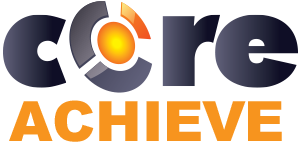Strategies for Promoting Learner Autonomy in Your LMS
July, 18 2023
Other posts:
Enhancing Team Dynamics for Effective Group Decision-Making with LMS Integration
Organizations increasingly rely on collaborative efforts to solve complex problems, innovate, and adapt to change, but how do we ensure that collaboration is happening.
Maximizing Small Business Potential with Training Technology
Training technologies can push small businesses ahead of their competitors, but what are the factors that go into choosing the right technology?
Unlocking Employee Potential: The Transformative Benefits of an Interactive Learning Management System (LMS)
Interactive training allows for unlocking employee potential, but how is it done?
Building a Robust Sales Pipeline with Training
Every organization wants a streamlined sales pipeline, but building one requires a series of interlocking activities with one of the most important being training.
Strategies for Adapting In-Person Training to Online Platforms
Online training is one of the most flexible ways of delivering training across organizations, but how do you even begin to adapt in-person training into online?
A Learning Management System (LMS) can be used asynchronously by learners regardless of time or location, but why don't they? Well, people need incentives
Promoting learner autonomy is essential for fostering a self-directed and empowered learning culture. By encouraging learners to take ownership of their learning journey, organizations can enhance engagement, motivation, and knowledge retention. Ultimately, by promoting learner autonomy in conjunction with a Learning Management System (LMS), organizations can guarantee that learners will constantly be improving their knowledge without needing external force.
Offer Personalized Learning Paths
One of the key strategies for promoting learner autonomy is offering personalized learning paths in your LMS. Allow learners to choose their learning goals and create customized learning paths based on their individual needs and preferences. Provide a variety of learning resources, such as videos, articles, interactive modules, and quizzes, allowing learners to explore content at their own pace and in their preferred sequence. All this works to give learners a sense of control over their learning—making it much more attractive to learn by themselves.
Encourage Goal Setting and Progress Tracking
Facilitate learner autonomy by encouraging goal setting and progress tracking within your LMS. Provide tools and features that allow learners to set specific learning objectives and monitor their progress towards those goals. Enable learners to track their completion rates, quiz scores, and achievements. By visualizing their progress, learners can self-assess their performance, identify areas for improvement, and stay motivated. Some learners will find that completion will be a motivator.
Foster Self-Assessment and Reflection
Self-assessment and reflection are essential activities for self-directed learning (after all, it is part of the learning journey). Provide opportunities for learners to evaluate their own understanding, skills, and performance through quizzes, self-check exercises, and reflective questions. Encourage learners to critically analyze their learning experiences, identify strengths and weaknesses, and set action plans for improvement. By engaging in self-assessment and reflection, learners develop metacognitive skills and become active participants in their own learning process.
Implement Collaborative and Peer Learning
While autonomy emphasizes individual responsibility, allowing collaboration can further help emphasize this. Implement collaborative and peer learning features in your LMS, such as discussion forums, group projects, and peer feedback. Encourage learners to interact, share insights, and learn from each other. This promotes a sense of community and empowers learners to take an active role in their learning by seeking and providing support. Collaboration nurtures autonomy by allowing learners to tap into collective knowledge and perspectives.
Provide Opportunities for Self-Directed Research and Exploration
Empower learners to explore beyond the provided resources by offering opportunities for self-directed research and exploration in your LMS. Include links to external websites, articles, and industry reports that align with the learning topics. Encourage learners to delve deeper into areas of interest, conduct independent research, and share their findings with others. By providing a platform for self-directed learning, you nurture curiosity, critical thinking, and autonomy among learners.
Promoting learner autonomy in your LMS is crucial for creating a self-directed and empowered learning environment. By implementing strategies such as personalized learning paths, goal setting, self-assessment, collaboration, and self-directed research, organizations can foster learner autonomy and empower individuals to take control of their learning journey. Embrace these strategies to enhance engagement, motivation, and knowledge acquisition within your LMS.
Implementing these strategies will enable organizations to create a learner centric LMS that supports individual autonomy and empowers learners to take ownership of their learning experience. By offering personalized learning paths, encouraging goal setting and progress tracking, fostering self-assessment and reflection, implementing collaborative and peer learning, and providing opportunities for self-directed research and exploration, organizations can cultivate a culture of autonomy and foster a deep sense of engagement and motivation in their learners while also increasing ROI.
Get started with CoreAchieve today for free.
Photo by Wes Hicks on Unsplash

Leave comment: